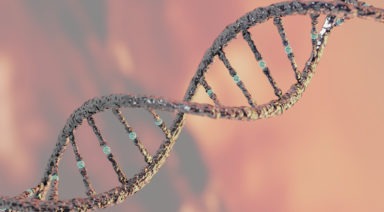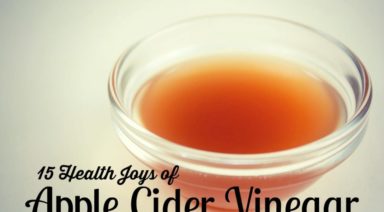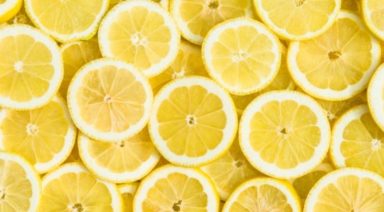380 Trillion Viruses Live In Us; How Do We Live Symbiotically With Them?

Interest in the microbiome has been steadily increasing over the past decade or so, and for good reason. The role of our internal ecosystem (gut flora) is one of the greatest scientific discoveries of our times, offering an insight into how we heal, fight off disease, and stay healthy — even in difficult times. In “Immunity and the Microbiome,” microbiologist Compton Rom presents a compelling argument for why we need to pay attention to the ecosystem of good bacteria in our digestive system.
Once we realize the great implications of how remarkable the microbiome within us can make or break our state of health, then we can boost our immunity over viruses, bacteria, and infections.
While the term “immune system” is relatively common in our daily vernacular, Rom does not limit it to the body alone. Rather, he has a holistic vision and ties the health of all life on this planet with the health of the Earth, including global warming, as well as the nature of disease-causing organisms. This holistic approach allows us to appreciate our unique role as conscious beings existing in various ecosystems that need to be recognized and respected.
Rom discusses historical evidence, showing that humans have evolved to live symbiotically with the life not just around us, but within us. This becomes particularly relevant when discussing the role of our virome, or the trillions of viruses and phages that live within our body and its cells. This he says is a major facet in maintaining proper health, by promoting symbiosis with viruses, so they don’t cause disease and illness.
We can optimize our virome and microbiome by introducing probiotic fermented and anti-inflammatory herbs, as well as a diverse diet of fruits and roots, to lower risks of infectious disease. In fact, the bacterial cells within our microbiome outnumber our human cells by tenfold.
Rom suggests our immunity from illness, as well as our relationship with the planet, begins at home. The best place to start our journey to optimum health and ideal immune function is by improving our diets, meditating, doing breathwork, exercising, and most importantly, proactively diversifying our gut microbiomes.
Compton’s philosophy is to take a non-chemical and non-pharmaceutical approach to healing, using natural herbs, and oils to eliminate pathogenic bacteria.
Our bodies, he notes, respond “best to natural compounds that have evolved alongside us for millennia. Synthetic compounds are singular in nature, while whole earth compounds carry numerous micronutrients and co-factors necessary for growth, many of which scientists have yet to discover.
This is why natural compounds are so much more effective. Modern medicine has yet to use them because they are impossible to patent; synthetics can be sold at a much higher profit than naturally derived and sustainably harvested herbs.”
What sets Rom apart from other scientists, including microbiologists and virologists, is that he does not regard bacteria, viruses, and fungi as enemies to be feared. Rather, if we take a holistic approach and see the world as a purposeful, organized, and flowing reality, then we can protect our bodies by strengthening them, rather than by taking a militant course that involves killing microorganisms, using toxic chemicals, and drugging our bodies.
As Regina Meredith aptly explains, healing and disease prevention begins “at the top,” not only with the health of our bodies, but also our states of mind, how we think, and our relationships to our planet and all the beings with whom we share precious resources.ta
The immune system is an evolutionary device. World-renowned biologist Bruce Lipton agrees that it is not completely formed when we’re born and remains in a state of evolution throughout our lifetimes. Thus, it’s what we do on a daily basis that makes the most difference in how we feel and how we stay healthy, regardless of genetics.
The fact that we can determine our own state of health is an exciting and promising notion, and it is the essence of the emerging science of epigenetics. In simplest terms, our leading scientists, such as Lipton and Rom, tell us we can take control not only of our own states of health, but also the stability and richness of our planet, and that the two are inseparable.
New Dr. Joe Dispenza Study Shows Meditators’ Blood Resists Illness

A cutting-edge, new study by Dr. Joe Dispenza is showing the connection between meditation and our body’s capacity to heal itself.
“Our nervous system tends to be the greatest pharmacy in the world,” Dr. Joe Dispenza said.
Dr. Joe Dispenza has spent a career, as he puts it, “demystifying the mystical” to that end. After leading week-long meditation retreats for years, he noticed miraculous changes among the participants, with some even claiming to have long-standing afflictions cured, seemingly by meditation alone. So, he decided to put it to scientific testing and partnered with the University of California San Diego biology department.
They tested advanced meditators, novice meditators, and a control group, and the results have been fascinating.
“We started looking closely at cellular function, and we started measuring thousands of cellular metabolites that determine whether a cell is in growth and repair or a cell is in breakdown,” Dr. Joe Dispenza said. “At the end of seven days, I get a call from our senior research analyst and he says ‘We have some really compelling things to show you,’ and we saw dramatic changes in the biology of advanced meditators. So when we started looking at the cellular function, we noticed along with the change in cellular function (for those people that watch Rewired) there was this arousal that was taking place in the person’s brain and in their nervous system. The arousal wasn’t pain, the arousal wasn’t fear, and the arousal wasn’t anger or aggression — which typically causes an arousal from the sympathetic nervous system — the person was reporting an arousal and the only word they could use was ‘ecstasy’ or ‘bliss,’ they had made some connection with something. So when we captured the blood of these people and when they made some type of connection, we noticed some really powerful effects in their blood plasma.”
But when they took the blood samples of these meditators into the lab they were in for a big surprise.




































